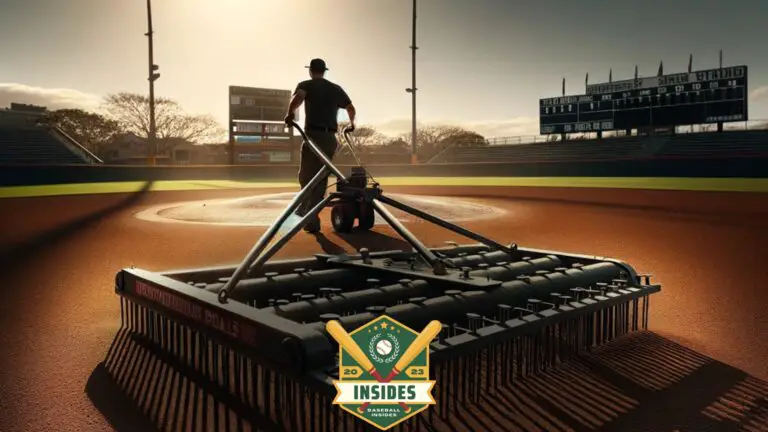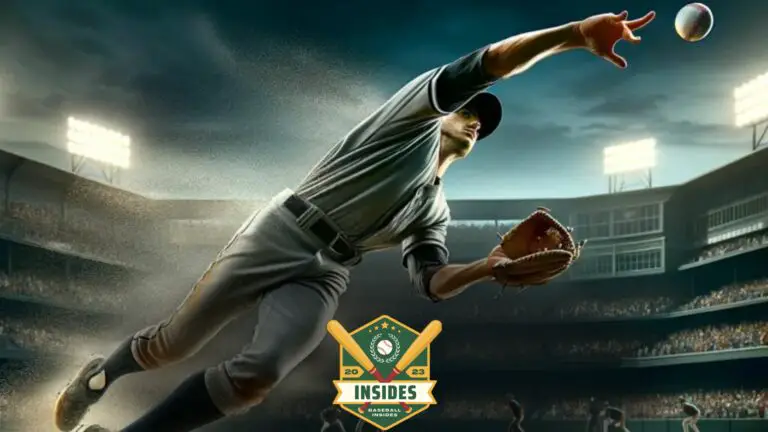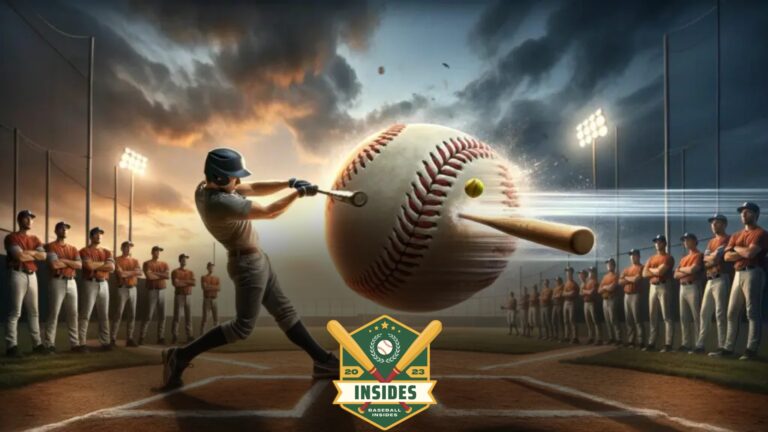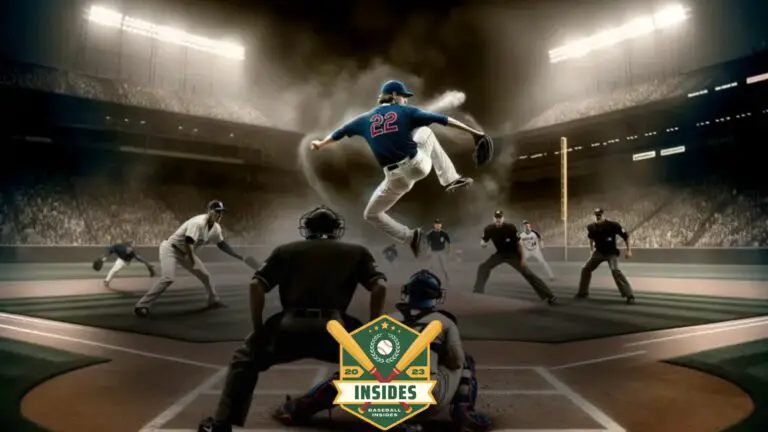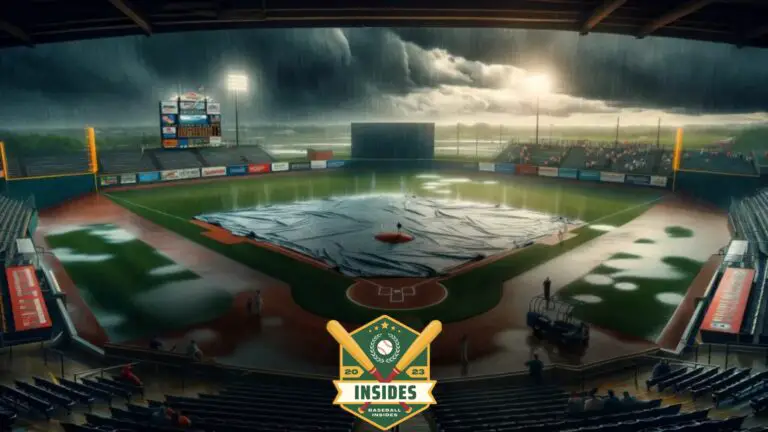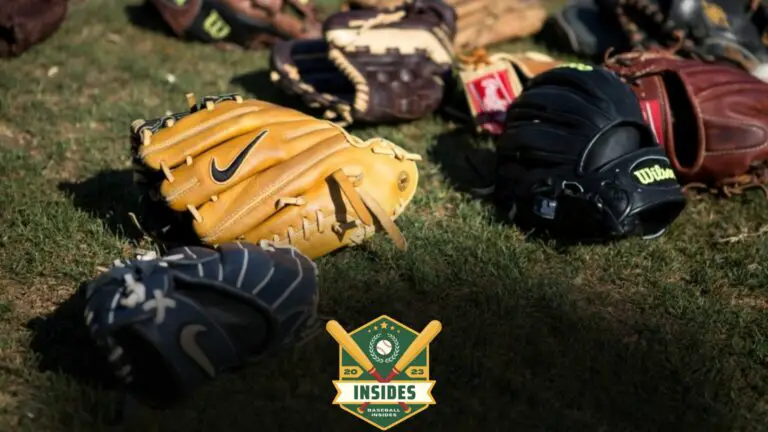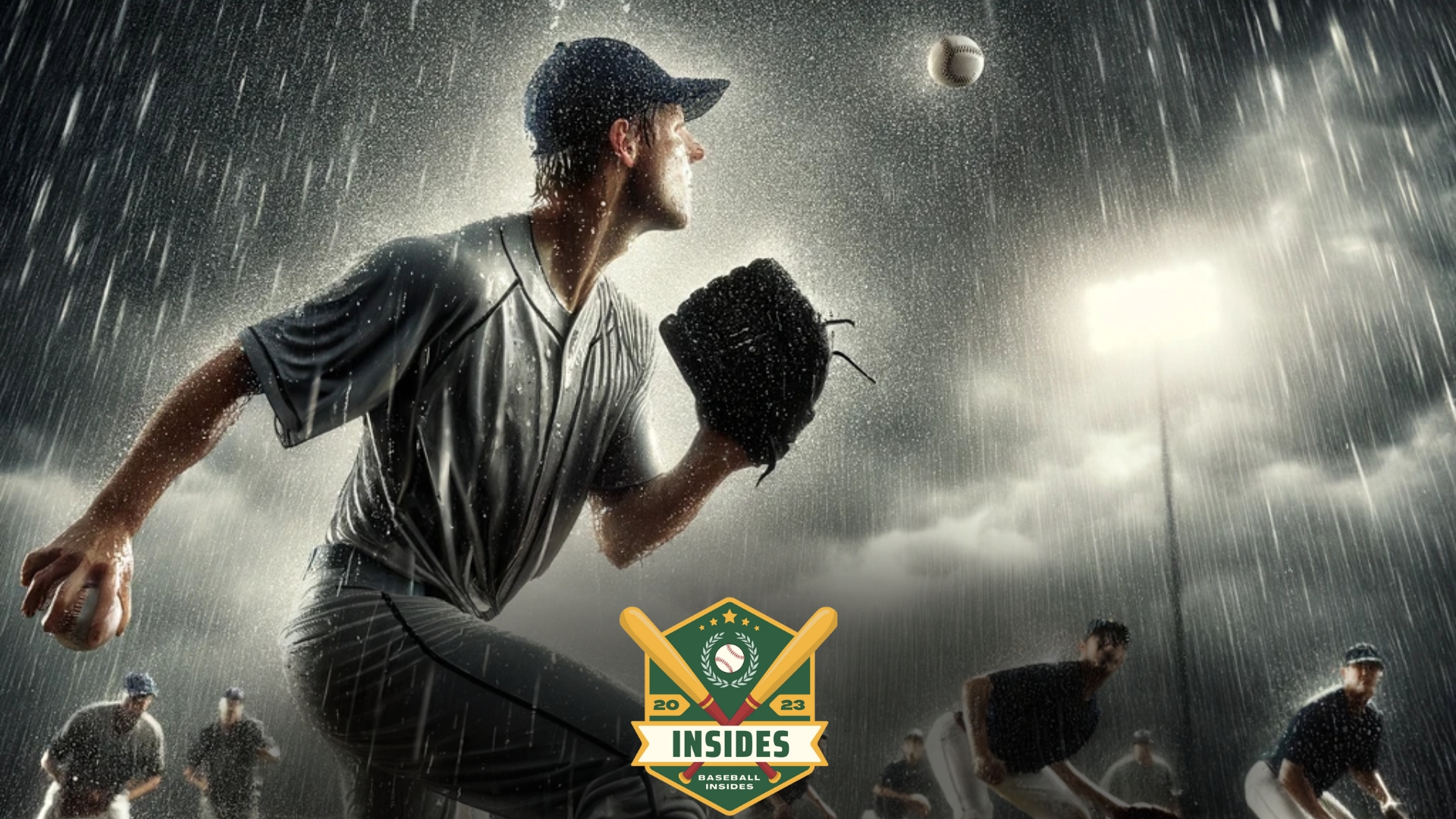
In this article:
Baseball games often pause or cancel in the rain to prevent player injuries and maintain fair play. Wet conditions deteriorate the field, making play unsafe and uncompetitive.
Baseball, America’s beloved pastime, thrives on precision, from the pitcher’s mound to the outfield. Rain introduces a slew of variables that threaten the athletes’ safety and compromise the game’s quality.
Slick surfaces can lead to falls, and a wet ball is hard to accurately grip, pitch, or hit.
Such weather conditions can also cause damage to the playing field, creating ruts and mudholes that affect the ball’s trajectory and players’ footing.
The integrity of the game is paramount, and playing in the rain would undermine it by skewing the results due to random, weather-induced errors rather than skill and strategy.
Therefore, baseball’s protocol during rainy conditions is designed to uphold the sport’s rigorous standards and the safety of its players.
The Impact of Rain on Gameplay
Rain can turn a baseball game upside down. It brings unique challenges that affect the flow of the game. Let’s dive into how rain impacts player safety and field conditions.
Compromising Player Safety
Slippery surfaces increase the risk of injuries. From twisted ankles to more severe accidents, player safety is a top concern. The rain makes baseball equipment, like balls and bats, slippery.
This makes it hard to hit and catch the ball. It can lead to unintended injuries.
Deteriorating Field Conditions
Rain affects the field in many ways. A wet field is a danger for players. It also makes the game less enjoyable to watch. Here’s a quick look at the issues:
- Muddy Ground: Rain turns dirt into mud. This mud can be very slippery.
- Puddles: Water pools on the field, creating obstacles.
- Grass Damage: Too much water can ruin the grass. This makes the field unsafe for future games.
Teams and leagues avoid playing in the rain to maintain the quality of play. They want to keep the games fair and safe.
Rain Delays and Postponements
Rain can disrupt baseball games, but why is that? Unlike many sports that continue with a little wet weather, baseball calls for a timeout. This is due to player safety, the condition of the field, and ensuring the game remains fair.
Rain delays and postponements can reshape a team’s entire season, impacting everything from player rest to fan engagement.
Let us buckle up as we dive into the reasons behind these weather-induced interruptions.
Game Scheduling Challenges
A sudden rainout can lead to a scheduling puzzle. Baseball teams play many games throughout the season.
Having to reschedule due to rain complicates the already tight calendar.
Teams must find common free dates, considering travel time and previous commitments. This can lead to:
- Doubleheaders: Two games in one day to compensate for the lost time.
- Longer series: Extending a series to fit in postponed games.
- Split series: Rescheduling for a later date in a completely different series.
Economic and Logistical Concerns
Postponed games aren’t just about finding a new date. They have ripple effects on the stadium revenue and logistics. Consider these points:
| Economic Impact | Logistical Impact |
|---|---|
| Refunds: Ticket refunds can hit teams’ budgets. | Staffing: Rescheduled games require staff realignment. |
| Sponsors: Deals may need renegotiation. | Travel: Teams and fans face altered travel plans. |
| Merchandise: Sales can dip with fewer fans at rescheduled games. | Game Prep: The ground crew must work extra to maintain fields. |
Each game matters a great deal in baseball’s interconnected ecosystem. A rainout touches every aspect of the sport, from the stadium vendors to broadcast networks.
Rain delays and postponements aren’t just about game tactics but also significant economic and logistical endeavors behind the scenes.
Historical Precedents
Peering into baseball’s past reveals a complex relationship with the rain. Readers often wonder why their favorite pastime pauses during a downpour.
Understanding the reasons requires a dive into the sport’s historical precedents.
Notable Rain-affected Games
Throughout history, rain has altered the course of countless baseball games. Inclement weather not only changes play conditions but also preserves player safety.
Let’s explore some memorable rain-affected matchups:
- Game 6 of the 1985 World Series: A soggy field postponed a pivotal game.
- The Midsummer Classic of 1969: Rainfall pushed the All-Star Game to the following afternoon.
- 1976 Opening Day at Yankee Stadium: A downpour resulted in a rare Opening Day postponement.
Evolution of Rainout Policies
Baseball’s stance on playing during rain has not always been static. Rainout policies have evolved significantly:
| Year | Policy Change |
|---|---|
| Early 1900s | Games frequently cancelled, rescheduling uncommon. |
| Mid-1900s | Doubleheaders became popular for making up rained-out games. |
| Present | Advanced drainage systems and tarps to protect fields; postponements decided earlier. |
These measures aim to optimize scheduling and minimize disruptions, benefiting teams and fans alike.
Baseball vs. Other Sports
Rain delays are a unique aspect of baseball compared to other sports. Most sports proceed through rain or have indoor facilities.
Let’s dive deeper into what sets baseball apart.
Different Approaches to Weather Interruptions
Baseball games halt for rain, unlike football or soccer. Teams and officials worry about safety and game integrity. Wet conditions can alter the ball’s movement and impact play quality.
Other sports adapt to weather changes. Football players push through rain unless there is lightning. Soccer matches continue, with players navigating the wet pitch.
- Baseball: Stops for rain to maintain field condition and safety.
- Football: Only pauses for lightning, otherwise game on.
- Soccer: Continues in the rain, adjusting tactics if needed.
Indoor Arenas and Domed Stadiums
Many sports use indoor arenas to avoid weather issues altogether. Basketball and hockey benefit from controlled environments.
Baseball has also embraced technology with domed stadiums. These stadiums can host games regardless of external weather conditions.
| Sport | Typical Venue | Weather Impact |
|---|---|---|
| Baseball | Open stadiums, some with retractable roofs | Minimal impact; games continue as scheduled |
| Basketball | Indoor arenas | Minimal impact, games continue as scheduled |
| Hockey | Indoor arenas | Minimal impact; games continue as scheduled |
Domes provide a perfect solution in baseball. But many stadiums retain open-air designs, embracing the sport’s traditional elements.
Technological Advances
The game of baseball evolves with technology. Innovations ensure player safety and maintain field conditions.
Improved Drainage Systems
New stadiums have advanced drainage systems. These systems quickly remove water from fields. They allow play to resume faster after rain. Key features include:
- Permeable infields: Let water pass through, reducing puddles.
- Sub-surface drainage: Pipes under turf to channel water away.
- Automated water pumps: Activate during heavy rainfall.
Weather Forecasting in Game Planning
Teams use advanced weather forecasting tools. Decisions on delays or postponements rely on these forecasts. Benefits include:
- Accurate predictions: Helps prepare for adverse weather.
- Real-time updates: Inform decisions during games.
- Safety protocols: Implemented before storms hit.
The Fan Experience
Baseball games bring fans together for an experience filled with cheers and excitement. Yet, rain can halt the game and dampen the mood.
Understanding how rain impacts the fan experience is key to appreciating the sport’s weather policies.
Alternative Entertainment During Delays
Rain delays need not spoil the fun. Stadiums often provide alternative entertainment to keep spirits high.
- Live music performances can ignite the crowd’s energy.
- Trivia games on the big screen test fans’ sports knowledge.
- Interactive apps provide games to play from the comfort of your seat.
These activities enhance the experience, turning delays into unexpected highlights.
Communicating With Spectators
Effective communication is crucial during game interruptions. Stadiums must keep fans informed to maintain a positive atmosphere.
- Announcements update on weather conditions and game status.
- Mobile alerts offer real-time information directly to fans’ phones.
- Social media channels provide continuous updates for fan convenience.
Transparent communication ensures spectators stay connected and engaged despite the weather.
Frequently Asked Questions
Why Does Baseball Cancel for Rain?
Baseball games are canceled for rain to ensure player safety and fair play conditions. Wet surfaces increase injury risks and compromise the game’s integrity.
Can Baseball Be Played in the Rain?
Baseball games can proceed in light rain but typically pause or cancel during heavy rainfall, ensuring player safety and maintaining field conditions. Umpires decide whether to suspend play due to weather.
Why Does Baseball Get Rained Out But Not Football?
Baseball games get rained out due to the sport’s reliance on precise ball control and player safety on a slippery field. Football, however, continues in rain as the sport tolerates tougher playing conditions and has less risk associated with wet surfaces.
Why Can’t You Play on a Wet Baseball Field?
Playing on a wet baseball field is unsafe due to the slippery surface, which increases the risk of injury. Moreover, wet conditions can damage the field and affect the game’s integrity by altering ball movement and player performance.
Why Is Baseball Cancelled During Rain?
Playing baseball in the rain can compromise player safety due to a slippery field, reduce the quality of gameplay, and damage the field itself.
Conclusion
Safety and play quality guide baseball’s rainout decisions. Rain creates hazards and compromises game integrity.
Rainchecks are about player protection and fan experience—a wise trade for sunnier days. For the love of the game, we pause for rain.

